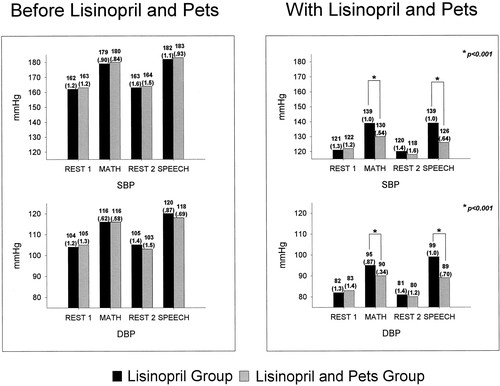Results: Pet owners had significantly lower systolic blood pressure and plasma triglycerides than non-owners. In men, pet owners had significantly lower systolic blood pressure than non-owners, but diastolic blood pressure was significantly lower, and plasma triglyceride and plasma cholesterol levels were significantly lower. 7 Santo. 1992г. Pets lower your blood pressure. Pet owners tend to have lower blood pressure, cholesterol, triglyceride, and resting heart rates than non-pet owners. Pets boost your immunity. People who live with animals develop a stronger immune system and are more likely to fight infectious diseases. Pets and your heart. According to the American Heart Association, keeping pets is associated with reducing the risk of heart disease and helps lower unhealthy cholesterol and triglyceride levels. Pets can help you survive a heart attack, even if you have had one. Studies show that keeping pets improves cardiovascular health (lowers blood pressure, lowers triglycerides, and lowers cholesterol in men). Increased physical activity.
Some studies have shown that dog owners have lower blood pressure than non-owners. Perhaps because pets have a calming effect on them, and dog owners tend to do more exercise. Tactile power also seems to be an important part of this "pet effect".
Do pet owners affect blood pressure?
The only randomized data on pet owners and blood pressure is 30 people with borderline hypertension, randomized to adopt dogs from shelters or postpone adoption of dogs. Obtained from 17 unpublished studies presented by participants in.
Does keeping a dog lower blood pressure?
Some studies show that when a person strokes a dog, blood pressure drops. There is some evidence that keeping a dog is associated with lower levels of cholesterol and triglycerides.
Does keeping a pet reduce the risk of heart disease?
However, that means pet owners can be a reasonable part of the overall strategy to reduce the risk of heart disease. Some studies have shown that dog owners have lower blood pressure than non-owners. Perhaps because pets have a calming effect on them, and dog owners tend to do more exercise.
What are the health benefits of having a pet?
No matter how stressful you may be, he helps you relieve anxiety, relax and feel connected. Pets lower your blood pressure. Pet owners tend to have lower blood pressure, cholesterol, triglyceride, and resting heart rates than non-pet owners.
Do pet owners have low blood pressure?
Some studies have shown that dog owners have lower blood pressure than non-owners. Perhaps because pets have a calming effect on them, and dog owners tend to do more exercise. 2015
Are pet owners healthier than non-pet owners?
Pet owners have also been shown to promote healing after cardiovascular events. A study using health data from the Swedish National Patient Enrollment found that patients with a heart attack who had a dog living alone after admission had a 33% lower risk of death compared to non-owners [12].
Are pet owners at low risk of heart disease?
Ownership of dogs is associated with a 24% reduction in the risk of death from all causes and a 31% reduction in the risk of death from a heart attack or stroke compared to non-owners. I was there. 2019
Is pet owners less stressed?
Pets, especially dogs and cats, can reduce stress, anxiety, depression, relieve loneliness, promote exercise and playfulness, and even improve cardiovascular health. Taking care of animals can help children grow safer and more active. Pets also provide valuable companionship to the elderly.

Below you will find two helpful answers on a similar topic. 👇
How did Pablo Picasso contribute to the peace movement?Does an ocelot have fur?
